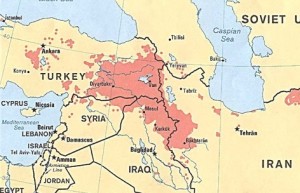Saudi Arabia's Efforts to Expand Radical Islam and Support Terrorism
Rachel Ehrenfeld and Ken Jensen
American Center for Democracy, 23 February 2013
On the eve of the Arab Spring, Rachel Ehrenfeld published a lengthy and important study titled, “Their Oil Is Thicker Than Our Blood“*on Saudi support for Islamist terrorism and the global expansion of the radical Islamic base, as well as the inadequacies of the Kingdom’s purported anti-terrorist efforts. While much has happened since, very little has changed regarding the patterns of Saudi behavior in this regard.
Despite continued public statements of support for U.S. and Western counterterrorism efforts, sporadic enforcement of new laws in the Kingdom regarding such things as money laundering, money transfers to dubious foreign recipients, and the occasional rousting of terrorist cells (al Qaeda- and Iran-affiliated), Saudi Arabia remains one of the most important sources of terrorist funding worldwide-if not THE most important source.
The U.S., while knowing this full well, has for many years doled out nothing but praise for the Saudis when it comes to fighting Islamist terrorism. This is as true now as it was after September 11. In this, the U.S. government has seemingly accepted the principal underpinning of the Saudi regime: buying off its would-be Islamist adversaries at home. The leading principle has been all along – not in our backyard. Thus the Kingdom’s support of Osama bin-Laden and al Qaeda in Afghanistan.
But Saudi funding to globally spread their Sunni radical version of Islam-Wahhabism–began in earnest in 1962 with the establishment of the Muslim World League (MWL), which expanded into at least to one hundred branches in more than thirty countries, and served as the main body for other international Saudi charities. Since then, the Kingdom’s charities have been estimated to spend between $1.5 and $2 trillion to build many thousand of mosques, madrassas and Islamic centers equipped with Saudi books and Imams, preaching the Wahhabi doctrine.




